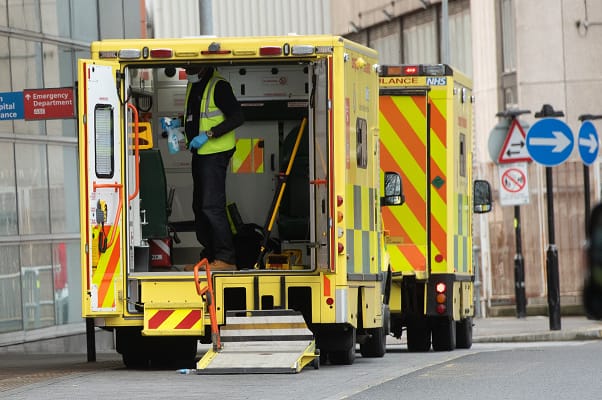The Liberal Democrats have said the Prime Minister “must get a grip” of the NHS crisis as the waiting list for people needing treatment currently stands at 5.8m in England.
Lib Dem health spokesperson Daisy Cooper said, “We’re talking about loved ones waiting for ambulances that arrive too late or get stuck in queues at hospitals with devastating results.
“The Prime Minister must get a grip of this crisis instead of trying to hide it.”
NHS providers have warned that patients could be asked to travel to different hospitals to get their treatment in an attempt to help deal with the backlog of care.
With almost 6m people are on a waiting list for treatment and some “radical ideas” are being put forward to try and help reduce the record high backlog.
Chris Hopson chief executive of the NHS Providers said people could well end up travelling to neighbouring hospitals instead of different parts of the country.
Hopson told Times Radio, “Everybody across the NHS recognises that having patients wait for their care is not an acceptable situation.
“There is a moral obligation on trusts and their leaders to make sure that they do everything they can, no stone unturned, to get through those care backlogs as quickly as possible.
“What we’re working on at the moment is a really comprehensive plan to get through those backlogs as fast as possible.
“And some of it will be all the traditional things that we do, which is: we will expand temporary capacity; we will ensure that we use overtime as much as possible; we will ensure that we use the capacity that sits in the independent sector.
“But I think we recognise we need to go further and that’s why, some of those radical ideas, we are considering and looking at them.”
He said he does not think people will be asked to travel from “Durham to Dunstable.”
He added, “So, what I think will happen is that, by getting trusts to work together more effectively as they’ve been doing over the last 18 months, you can see people being asked to be moved, you know, relatively short distances.”
Hopson continued, “So if you look back to the Easter Bank Holiday, there are three trusts that are currently working together Bath, Swindon and Salisbury.
Bath had a significant number of children who had been waiting for a very long period of time for ear, nose and throat surgery, but because they were working together, there was some spare places in Salisbury and they wrote to all of the parents of those children and said: ‘would you like to go to Salisbury on a bank holiday weekend?’.
“What really surprised the chief executives in those trusts was that actually they had a very, very high take-up.
“So, as I said, it’s not the impression that has been given – is it sort of one end of the country to the other? No. Actually, it’s likely to be hospitals that are kind of close to each other.”
Speaking of reducing the number of outpatient appointments after surgery, Hopson added, “Our clinicians manage clinical risk and nobody is going basically to suggest to a patient who might have a risk ‘Oh, no, we don’t need to see you, off you go’, and ‘Actually, we’ll only see you if it turns into an emergency’.
“That is absolutely not what’s going to happen.
“The way the outpatient system tends to work in lots of specialties is that we do say to people ‘Come back in three (months), come back in six, come back in nine, come back in 12’, and, actually, you won’t need all of those four appointments in many cases.
“And moving towards a system where you can give patients the opportunity to say ‘Actually, I’ll only do the six, but if I’ve got a problem at the three in the nine-month period, I know I can get hold of you’.
“Then that will free up a lot more capacity for those consultants to actually do elective surgery and backlog recovery.
“The implication that we’re suddenly just going to say to everybody ‘We don’t want to see you anymore’ – absolutely not. It will be risk-based, as it always is, and that’s what our clinicians are brilliant at and they’re really good at identifying when they need to ask people to come back.”





Leave a Comment